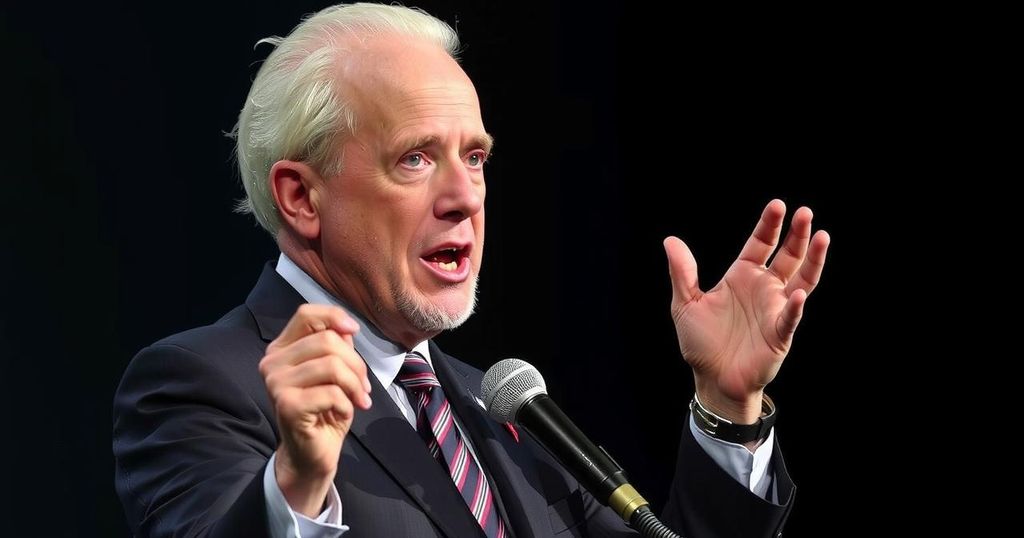Biden to Address the Nation Following Trump’s Election Victory

President Biden is set to address the nation following Donald Trump’s election victory over Kamala Harris, marking a significant power shift towards Republican control in Washington. Key Senate and House races remain uncertain, with critical implications for future legislation. Foreign policy strategies will be challenged as Biden navigates these changes, all while Trump prepares to establish his administration in January.
In the aftermath of a contentious presidential election, President Joe Biden is set to deliver an address to the nation today, marking his first public statement since Donald Trump was declared the victor over Vice President Kamala Harris. Trump’s win signals an impending shift in power dynamics, as Republicans are preparing to solidify their control over both the White House and the Senate, leaving the status of the House of Representatives uncertain until further results are confirmed. Biden, who will speak from the Rose Garden, praised Harris for her efforts during the campaign and acknowledged that her selection was a pivotal moment in his presidency. Meanwhile, Trump’s transition team is working diligently to assemble a cabinet and lay groundwork for his upcoming administration. As tensions rise over both domestic and foreign policy issues, Biden’s foreign relations agenda faces significant challenges in light of Trump’s victory. Foreign leaders must now navigate a developing landscape wherein Biden’s authority is diminished, potentially impacting international relations and diplomatic negotiations. The election results have already begun shaping expectations for future policies, especially within the Republican Party as they eye their legislative agenda, including the potential extension of Trump-era tax cuts. The election outcome not only reshapes the political landscape but also raises questions about Trump’s approach to governance, balancing aggressive campaign promises with the requirements of effective leadership. This election cycle has exposed deep political divisions while also heightening anticipation for the coming weeks as both parties prepare for their respective roles in a newly configured political environment. With multiple House races still too close to call, there remains a level of uncertainty about the control of Congress, energizing both parties as they prepare for a significant shift in power dynamics. As Trump’s administration gears up for its potential agenda items, Biden’s administration must contend with challenges related to a limited timeline before the transition, including urgent foreign policy decisions that could have lasting implications for the United States’ standing on the world stage.
The 2024 presidential election has been marked by significant challenges and a polarized electorate. With Donald Trump’s victory over Kamala Harris, the Republican Party is set to regain unified control of the government, having already secured the Senate. This situation presents an intricate political landscape as President Joe Biden prepares to address key foreign policy issues while managing a dwindling amount of time in office before Trump takes over. Furthermore, the ongoing uncertainty regarding the composition of the House of Representatives adds another layer to this complex political moment, prompting both parties to strategize for forthcoming legislative battles.
In conclusion, President Biden’s scheduled address underscores the profound implications of Donald Trump’s electoral victory for both domestic and international politics. As the transition process unfolds, the implications for foreign policy and legislative agendas will be significant, navigating through a landscape fraught with uncertainty. The Republican Party’s strategic preparations highlight a trend toward aggressive policymaking, while Biden’s administration grapples with its foreign relations challenges during the remaining weeks of his presidency. This pivotal moment in American politics signals a transformative period as both parties brace for impending changes in governance.
Original Source: www.washingtonpost.com







